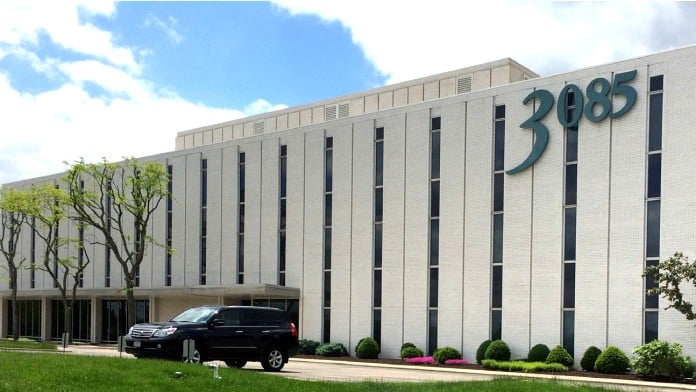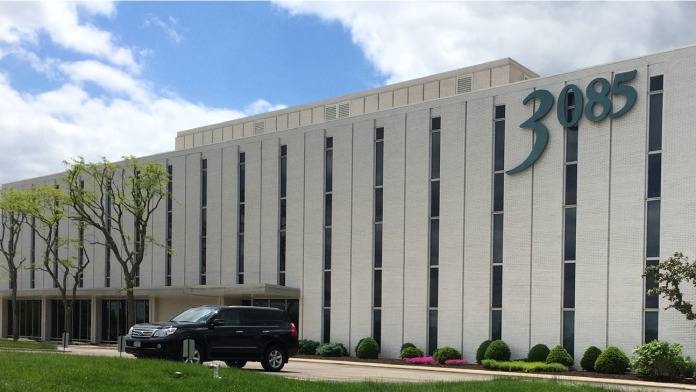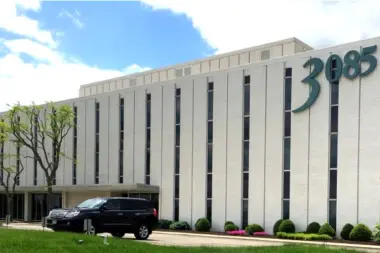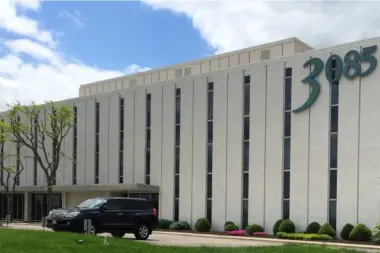They're okay but spend most of the time reading out of a book am individual can buy themselves. Not only that, I wasn't expecting to spend my whole paycheck on something I didn't necessarily need. AA and NA is definitely better. I would also recommend just buying your own bo ...
About TCN Behavioral Health Services
Founded in 1990, TCN Behavioral Health has decades of experience supporting its local community in Kettering, Ohio. By providing services to over 8000 individuals across five Ohio counties—Montgomery, Miami, Logan, Greene, and Champaign—every year, care is available to clients of all ages.
Crisis Support Services in Montgomery County
For when things get urgent, you can rely on this facility for support. Crisis staff are available in the community on location or to come to wherever you are to provide crisis assessment and ongoing support. National crisis lifeline and hotlines are available 24/7/365 to offer support. Meanwhile, walk-in crisis services are available at all TCN locations during business hours. Regular walk-ins take place on Mondays and Wednesdays. Limited weekend appointments are available.
Addiction Treatment Services in Kettering
Expect a full spectrum of care here, if programming focused on developing coping skills to support a long-term recovery. Following a Harm Reduction Philosophy, the center provides personalized treatment planning that accounts for your unique preferences, needs, medical history, relationships, and beliefs.
You’ll be partnered with a counselor who’ll guide you along the way, and provide feedback and support on your successes, setbacks, and goals. You’ll have access to varying levels of care, including partial hospitalization (PHP), intensive outpatient (IOP), and standard outpatient programming. Specialized dual diagnosis recovery services are also available, along with medication assisted treatment (MAT) as well as aftercare and relapse prevention support.
In-person and telehealth access are available. Specialized youth support services are also available, providing aid to families and young people. This includes diagnostic assessment services, individual and group therapy, family and school-based counseling, case management, and community services.
Facility Overview
Latest Reviews
Rehab Score
Gallery




Other Forms of Payment
Medicaid is a state based program that helps lower-income individuals and families pay for healthcare. Medicaid covers addiction treatment so those enrolled can use their coverage to pay for rehab. When a program accepts Medicaid the client often pays very little or nothing out of their own pocket.
Private insurance refers to any kind of healthcare coverage that isn't from the state or federal government. This includes individual and family plans offered by an employer or purchased from the Insurance Marketplace. Every plan will have different requirements and out of pocket costs so be sure to get the full details before you start treatment.
Self-pay involves paying for treatment out of your own pocket. You can use savings or credit, get a personal loan, or receive help from family and friends to fund your treatment. If you don't have insurance or your insurance plan doesn't cover a specific program, self-pay can help ensure you still get the care you need.
Medicare is a federal program that provides health insurance for those 65 and older. It also serves people under 65 with chronic and disabling health challenges. To use Medicare for addiction treatment you need to find a program that accepts Medicare and is in network with your plan. Out of pocket costs and preauthorization requirements vary, so always check with your provider.
Military members, veterans, and eligible dependents have access to specific insurance programs that help them get the care they need. TRICARE and VA insurance can help you access low cost or no cost addiction and mental health treatment. Programs that accept military insurance often have targeted treatment focused on the unique challenges military members, veterans, and their families face.
Financial aid can take many forms. Centers may have grants or scholarships available to clients who meet eligibility requirements. Programs that receive SAMHSA grants may have financial aid available for those who need treatment as well. Grants and scholarships can help you pai for treatment without having to repay.
Addiction Treatments
Levels of Care
All of TCN's outpatient services are designed to fit your personal needs. Through the use of group counseling, individual counseling, and case management services they will work with you to create goals and tailor a program that best suits you. Standard Outpatient Level 1 (SOP I) is for clients who have experienced one or two consequences associated with substance use. Clients appropriate for this group have made unhealthy decisions concerning substance use or behavior while intoxicated has been problematic. Standard Outpatient Level 2 (SOP II) is designed to offer education about substance use disorder and relapse prevention, assist client in evaluating his/her relationship with substances, and teach healthy coping skills for daily living.
TCN offers outpatient detoxification for opiate addiction though their Creekside Outpatient Clinic. Their doctors follow the Ohio Department of Mental Health and Addiction Services protocols for use of Suboxone (TM) for opiate detoxification in a convenient outpatient setting. The medication is administered by a staff of trained addictionologist in conjunction with client participation in intensive outpatient group therapy.
Intensive Outpatient (IOP) is for clients with a substance use disorder diagnosis who need a highly structured program to maintain abstinence. The group is designed to offer education about substance use disorder, relapse prevention, and basic recovery skills. Focus of the group is treatment and development of naturally-existing support groups in the community.
Aftercare is for clients who have completed IOP, residential, or forensic treatment and have over 30 days of abstinence. Focus of group is further development of relapse prevention skills, identifying relapse triggers, and supporting client in expanding and utilizing support system.
Treatments
The goal of treatment for alcoholism is abstinence. Those with poor social support, poor motivation, or psychiatric disorders tend to relapse within a few years of treatment. For these people, success is measured by longer periods of abstinence, reduced use of alcohol, better health, and improved social functioning. Recovery and Maintenance are usually based on 12 step programs and AA meetings.
Drug rehab in Ohio provides comprehensive treatment to address the physical and psychological needs of those struggling with substance use disorders. This may involve inpatient and/or outpatient care.
TCN, as a provider of all types of behavioral health treatment, recognizes that many clients have both mental illness and chemical dependency treatment needs. This highly specialized treatment option addresses the challenges of working toward recovery when dealing with multiple issues. Education and skill building focus on abstaining from substances while managing the challenges of mental illness. Clients receive additional support in this program through involvement with Community Support Services.
A combined mental health and substance abuse rehab has the staff and resources available to handle individuals with both mental health and substance abuse issues. It can be challenging to determine where a specific symptom stems from (a mental health issue or an issue related to substance abuse), so mental health and substance abuse professionals are helpful in detangling symptoms and keeping treatment on track.
Opioid rehabs specialize in supporting those recovering from opioid addiction. They treat those suffering from addiction to illegal opioids like heroin, as well as prescription drugs like oxycodone. These centers typically combine both physical as well as mental and emotional support to help stop addiction. Physical support often includes medical detox and subsequent medical support (including medication), and mental support includes in-depth therapy to address the underlying causes of addiction.
Programs
Adult rehab programs include therapies tailored to each client's specific needs, goals, and recovery progress. They are tailored to the specific challenges adult clients may face, including family and work pressures and commitments. From inpatient and residential treatment to various levels of outpatient services, there are many options available. Some facilities also help adults work through co-occurring conditions, like anxiety, that can accompany addiction.
Young adulthood can be an exciting, yet difficult, time of transition. Individuals in their late teens to mid-20s face unique stressors related to school, jobs, families, and social circles, which can lead to a rise in substance use. Rehab centers with dedicated young adult programs will include activities and amenities that cater to this age group, with an emphasis on specialized counseling, peer socialization, and ongoing aftercare.
Clinical Services
Cognitive Behavioral Therapy (CBT) is a therapy modality that focuses on the relationship between one's thoughts, feelings, and behaviors. It is used to establish and allow for healthy responses to thoughts and feelings (instead of unhealthy responses, like using drugs or alcohol). CBT has been proven effective for recovering addicts of all kinds, and is used to strengthen a patient's own self-awareness and ability to self-regulate. CBT allows individuals to monitor their own emotional state, become more adept at communicating with others, and manage stress without needing to engage in substance abuse.
Whether a marriage or other committed relationship, an intimate partnership is one of the most important aspects of a person's life. Drug and alcohol addiction affects both members of a couple in deep and meaningful ways, as does rehab and recovery. Couples therapy and other couples-focused treatment programs are significant parts of exploring triggers of addiction, as well as learning how to build healthy patterns to support ongoing sobriety.
Dialectical Behavior Therapy (DBT) is a modified form of Cognitive Behavioral Therapy (CBT), a treatment designed to help people understand and ultimately affect the relationship between their thoughts, feelings, and behaviors. DBT is often used for individuals who struggle with self-harm behaviors, such as self-mutilation (cutting) and suicidal thoughts, urges, or attempts. It has been proven clinically effective for those who struggle with out-of-control emotions and mental health illnesses like Borderline Personality Disorder.
Eating disorders include anorexia, bulimia, binge eating, and dysfunctional eating patterns. Many psychologists and other mental health professionals consider eating disorders to be food addictions, meaning food is being used in an addictive way (similar to drug or alcohol addiction). Certain substance abuse treatment programs will have treatment for eating disorders as one of the services offered. An eating disorder may also present as a co-occuring disorder or dual diagnosis alongside drug and alcohol addiction.
Experiential therapy is a form of therapy in which clients are encouraged to surface and work through subconscious issues by engaging in real-time experiences. Experiential therapy departs from traditional talk therapy by involving the body, and having clients engage in activities, movements, and physical and emotional expression. This can involve role-play or using props (which can include other people). Experiential therapy can help people process trauma, memories, and emotion quickly, deeply, and in a lasting fashion, leading to substantial and impactful healing.
You may encounter relational stressors that require your significant other or entire family to participate in the counseling process. As with Individual Counseling, the concerned parties will contribute to the goal setting and plan development to ensure that treatment is meaningful to your situation.
Group counseling provides a unique and dynamic atmosphere to address specific issues. Building support with people who share similar concerns, giving and receiving feedback, and observing successes and challenges are just a few of the advantages of group counseling. TCN offers group therapy including Anger Management, their Recovery Program day treatment for severe mental illness, and dialectical behavior therapy group, Wise Minds.
Based upon the goals and plan developed at assessment, TCN counselors work to meet those individualized needs. Counseling is customized to meet client needs and build upon strengths. Their counselors will review progress regularly and tailor future sessions to your evolving needs.
TCN provides a best-practice Supported Employment program to assist mentally ill clients in pursuit of meaningful job opportunities suited to their clients' strengths and abilities. Their program assesses their clients' aptitudes and goals to assist with job placement and job support.
Trauma therapy addresses traumatic incidents from a client's past that are likely affecting their present-day experience. Trauma is often one of the primary triggers and potential causes of addiction, and can stem from child sexual abuse, domestic violence, having a parent with a mental illness, losing one or both parents at a young age, teenage or adult sexual assault, or any number of other factors. The purpose of trauma therapy is to allow a patient to process trauma and move through and past it, with the help of trained and compassionate mental health professionals.
Accreditations

The Commission on Accreditation of Rehabilitation Facilities (CARF) is a non-profit organization that specifically accredits rehab organizations. Founded in 1966, CARF's, mission is to help service providers like rehab facilities maintain high standards of care.
CARF Accreditation: Yes
Contact Information
3085 Woodman Drive
Suite 300
Dayton, OH 45420